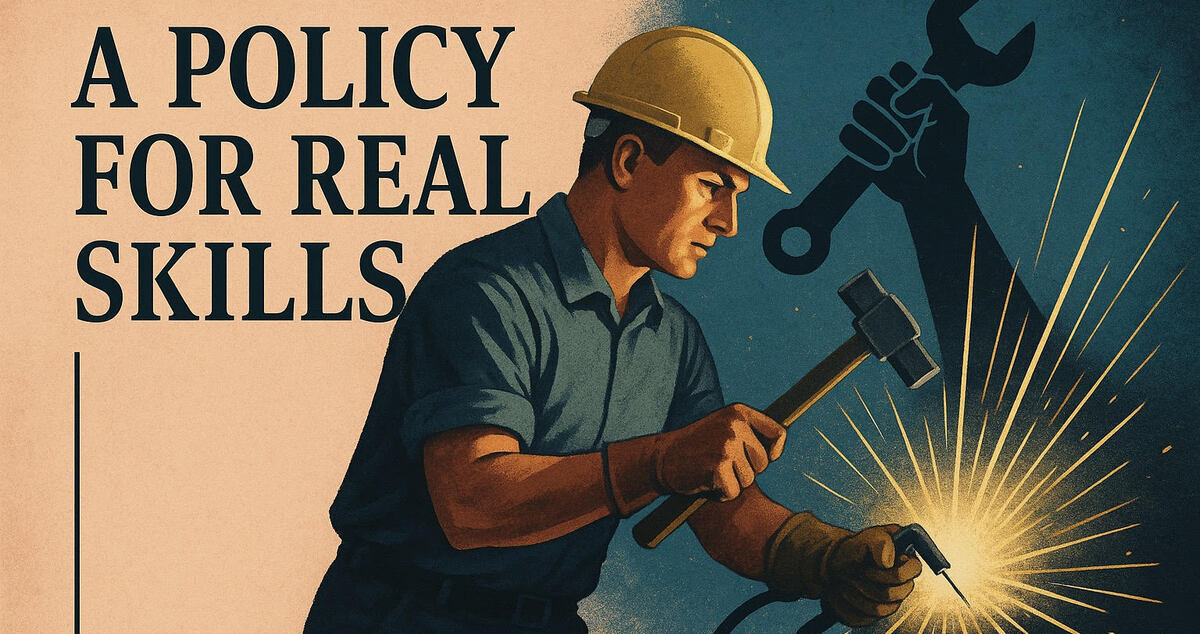The skills gap that is breaking the West Midlands
The West Midlands is quietly suffering from a crisis that threatens to stall its recovery before it begins. Beneath the headlines about investment and levelling up lies a simple truth: the region is running out of skilled workers.
According to the Greater Birmingham Chambers of Commerce, one in four local vacancies is now “hard to fill.”
Manufacturers cannot find machinists, builders are short of bricklayers, and tech firms complain of a shortage of trained technicians.
The region that once built engines for the world is now struggling to find enough people who can make or mend them.
Employers are blunt. Billions have been poured into training providers, colleges and consultancies, but few see results on the ground. Businesses describe a system obsessed with paperwork rather than productivity.
‘We need people who can actually do the job’
As one factory owner in Wolverhampton put it, “We do not need another funding round. We need people who can actually do the job.”
This is not a new problem, but it has deepened into something chronic. The pandemic disrupted apprenticeship pipelines, Brexit reshaped labour flows, and automation has changed what many industries need. Yet while the workplace evolved, the training system stayed still. We have a mismatch of talent and need, and the cost is being counted in cancelled contracts and lost opportunities.
That is why the argument behind the GRIT manifesto, an independent initiative for practical policy reform, has never been more relevant. It sets out a blueprint for rebuilding real skill across Britain by returning power to those who actually do the work.
A bureaucratic machine that eats cash and produces nothing
As training specialist John McDonough of Recro Consulting puts it: “We no longer have a skills problem. We have a skills bureaucracy, an industrial machine that eats money and produces nothing of lasting value.”
He is right. The West Midlands, more than most regions, has paid the price for this national failure.
The first step is to take the money off the middlemen. Funding should flow directly to companies that take on and train apprentices, not to those who simply deliver courses. Colleges and private providers must earn their funding through verified outcomes, not attendance or certificates.
Next, the region should establish local apprenticeship boards made up of employers, chambers, and trade associations. Skills are local. The training needs of Birmingham are not the same as those of Shropshire or the Black Country. Let local business decide what trades are short, what standards matter, and who is fit to train.
A National Skills Trust could hold and distribute funds fairly, giving rebates to employers who train and contribute, and ending the cycle of bureaucracy that rewards process instead of progress. Firms that do not train should see their contributions support those who do.
We need real apprentices – where you actually learn to do stuff
Real apprenticeships must return to their proper meaning: three to five years of structured learning under a qualified mentor, ending in a real test of mastery. The title of “apprentice” should once again mean something earned.
And those who teach must be valued. The masters, the experienced tradespeople who pass on their craft, deserve recognition and reward. Without them, skill dies with retirement.
This is not nostalgia. It is economics. If Britain wants to rebuild its industries, the West Midlands must be the proving ground. A region built on engineering, metalwork, and design still holds the muscle memory of manufacturing. What it lacks is a training model that connects classroom learning to workshop reality.
Public contracts need a skills clause
Every major public contract in the region should include a skills clause. Whether it is infrastructure, housing or clean energy, each project must train a share of its own workforce. Public money should create not just buildings but builders.
Government’s role should be to set the framework, publish real data on employment and productivity, and then get out of the way. Let employers, guilds and local partnerships build the rest.
This is how the West Midlands can lead a national renewal in skill and dignity. It is not about slogans or strategies but about restoring pride in making, repairing and creating. The country that built ships, railways and engines can do so again if it invests in its own people.
The full GRIT manifesto, published through Mike Olley’s www.midlandsGRIT.co.uk, sets out a plan to rebuild Britain’s skills base from the ground up. We do like to have a moan, but feel it important to address the issue with a solution.
Because without the people who make things, nothing else works.







